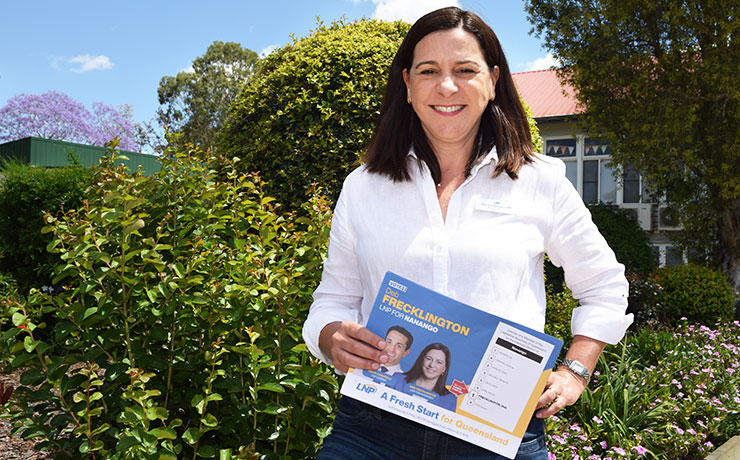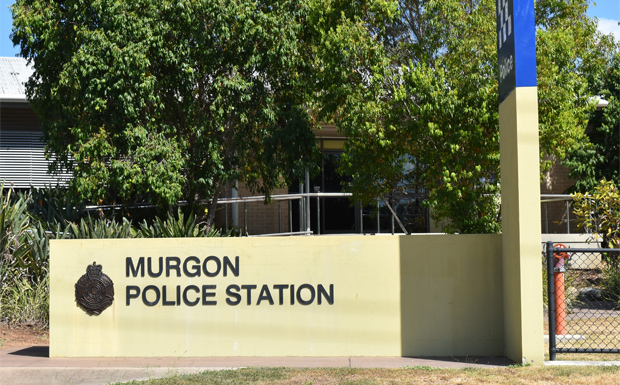
December 10, 2024
Attorney-General Deb Frecklington has defended the State Government’s fast-tracked Bill which aims to crack down on youth crime, despite admitting that parts are not compatible with the Human Rights Act.
Mrs Frecklington’s official “Statement of Compatibility“, prepared for the Making Queensland Safer Bill 2024, was released late last week.
The Bill has already passed through the Committee process and is expected to be debated in Parliament within days.
In the Statement of Compatibility, Mrs Frecklington wrote that she accepted that some of the amendments were in conflict with international standards regarding the best interests of a child and it was likely “at least in the short term that the increase in custodial sentences will further strain capacity in youth detention centres in Queensland, and many result in children being held in watchhouses for extended periods of time”.
She noted it was “widely accepted” that watchhouses were “not appropriate or humane places in which to detain children (particularly for any lengthy period of time)”.
Mrs Frecklington also wrote that the amendments were expected to have “a greater impact on Aboriginal and Torres Strait Islander children, who are already disproportionately represented in the criminal justice system” and could result in more of these children being imprisoned.
However, she did not believe the amendments directly or indirectly discriminated on the basis of race as they would be applied equally to all children convicted of an offence.
As well, courts would retain the ability to take into account whether a child is Aboriginal or Torres Strait Islander during sentencing.
Mrs Frecklington told southburnett.com.au it was important to remember the Human Rights Act applied to every Queenslander, not just those who were breaking the law, and every Queenslander was entitled to feel safe and secure.
“Our community told me loud and clear in the lead up to the election they were living in fear, including in their own homes,” she said.
“I heard stories firsthand from friends and neighbours about how they had become victims of Labor’s crime crisis.
“Just recently, the midwife who lives next door to me had her home broken into and her car stolen, leaving her unable to get to work. That is not how any of us want to live.
“The Crisafulli Government wants Queenslanders to once again feel safe in their own homes and that is why we have made community safety our number one priority.
“Under the Making Queensland Safer Laws, young offenders who commit some of the most serious criminal offences will be held accountable for their actions and the harm they cause, to the same extent as an adult offender, and I make no apology for giving our courts every tool they need to impose penalties that meet community expectations.
“But that is not all the Crisafulli Government is doing, because we are also investing $100 million in gold-standard early intervention.
“That will go towards community-led initiatives with a focus on reducing crime and boosting education, training and employment, including across the South Burnett.”
In the Statement of Compatibility, Mrs Frecklington wrote that the purpose of the amendments were “punishment and denunciation” which were legitimate aims.
“I recognise that there may be less restrictive options available to achieve the stated purpose … without also exposing children to mandatory minimum sentences” but she wrote that the measures were “clearly supported by Queenslanders” and were a direct response to “growing community and outrage over crimes perpetrated by young offenders”.
* * *
The Making Queensland Safer Bill 2024 will amend the Youth Justice Act 1992 to:
- Introduce “adult crime, adult time”;
- Remove the principle of detention as a last resort and that a non-custodial order is better than detention in promoting a child’s ability to reintegrate into the community;
- Promote the consideration of the impacts of offending on victims in the Charter of Youth Justice Principles and when sentencing a child;
- Ensure a child’s criminal history reflects their full history;
- Enable a person’s child criminal history to be admitted when sentenced as an adult;
- Default to an “opt out” mechanism for victims on the victim information register; and
- Alter the process relating to the transfer of 18-year-old detainees from youth detention centres to adult correctional centres.
The Bill will also amend the Children’s Court Act 1992 to:
- Ensure the victim or a member of the victim’s family can be present during criminal proceedings; and
- Enable the media to be present during criminal proceedings by omitting the ability of a court to make an exclusion order under Section 20 (2).
The “adult crime, adult time” proviso was part of the LNP’s election campaigning, with leader David Crisafulli promising to have the Bill passed before Christmas.
* * *
The list of offences in the Queensland Criminal Code which the Making Queensland Safer Bill covers are:
- Murder (Section 302)
- Manslaughter (Section 303)
- Unlawful striking causing death (Section 314A)
- Acts intended to cause grievous bodily harm and other malicious acts (Section 317)
- Grievous bodily harm (Section 320)
- Wounding (Section 323)
- Serious assault (Section 340)
- Robbery (Section 409, 411)
- Burglary (Section 419)
- Entering or being in premises and committing indictable offences (Section 421)
- Unlawful use or possession of motor vehicles, aircraft or vessels (Section 408A)
- Unlawful entry of a motor vehicle (Section 427); and
- Dangerous operation of a vehicle (Section 328A).
UPDATE December 19: The previous Labor government also overrode the Human Rights Act on three occasions: the Strengthening Community Safety Bill 2023 (in relation to the Bail Act 1980); and the Child Protection (Offender Reporting and Offender Prohibition Order) and Other Legislation Amendment Act 2023 (in relation to the Police Powers and Responsibilities Act 2000 and the Youth Justice Act 1992).























